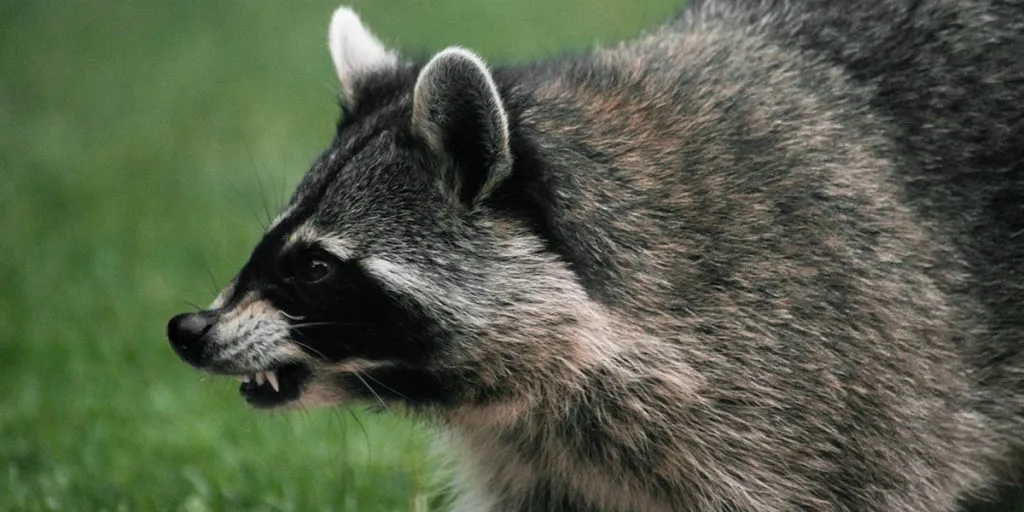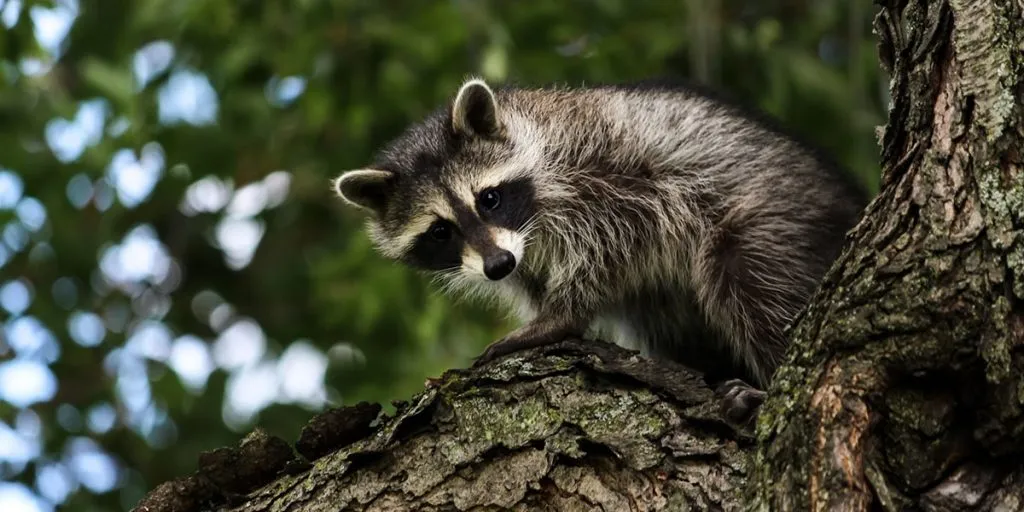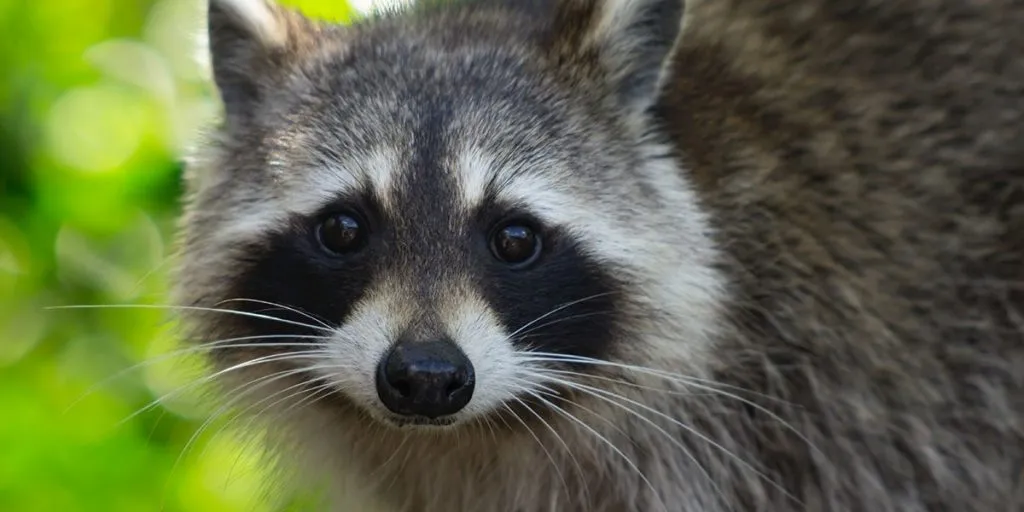While raccoons are not particularly aggressive or dangerous animals, there are always exceptions to the rule. A raccoon will generally interact with humans to get food, which is when the majority of raccoon bites happen.
Raccoons are not dangerous to human health because of particularly aggressive behavior, but because incidental bites can cause rabies. A CDC survey revealed that 30.3% of raccoon wildlife are active carriers of the rabies virus, a life-threatening disease for humans.
The potential risk of infection doesn’t stop there. Interaction with raccoon poop and urine can also be dangerous. The droppings can carry diseases such as salmonella, leptospirosis, and raccoon roundworm (baylisascaris).
When Can Raccoons Be Aggressive?
In general, raccoons rarely show aggressive behavior towards members of another species. A raccoon is most likely to show aggression when it feels scared or threatened, when competing over food, or when a mother wants to protect her litter.
It’s highly unusual for a healthy raccoon to show aggression towards people, but it’s not impossible. A rabid raccoon is more likely to show unprovoked aggression.
Before attacking, a raccoon will usually show aggressive body language. More often than not, this is simply a “bluff”, they want to see your next move first. Threatening behavior from a raccoon clearly shows in the way the animal acts leading up to a potential attack:
- Freezing and staring
- An arched back
- Huffing, growling, or even screaming
- Charging or lunging at the perceived threat
Are Raccoons Dangerous To My Pets?
Raccoons are more likely to be dangerous to a cat or dog than to a human. Pets are more likely to provoke aggression in a wild raccoon, because they might perceive them as a threat. A raccoon can also be dangerous when they compete with dogs or cats over food.
Responsible pet owners should always try to protect their animals from wildlife. Don’t feed your pets outside, and definitely don’t leave cat food out after dark. Keep cats indoors after dark if raccoons are active in the area, because raccoons are known to attack cats.
Since raccoons are common carriers of the distemper virus, you should always keep dogs out of raccoon territory. The disease is highly contagious to dogs, as it is of canine origin. Dogs are also more likely to be protective of their owners, which might create a dangerous stand-off between a dog and raccoon.
What To Do If A Raccoon Approaches You
Break eye contact. Making eye contact is the universal language for aggression. Avoid looking an approaching raccoon in the eyes at all costs. At the same time, you’d want to start creating physical distance between you and the animal.
Back away slowly. If you want to deescalate a threatening situation, give a raccoon that approaches you some space to escape. Keep as much physical distance as possible. This will help it feel less threatened right away, which will often help the animal ‘snap out of it’.
Make loud noises. After physically backing away, make as much noise as possible to show you’re not afraid. Yelling and clapping will remind a raccoon you’re a scary predator that might eat them.
Create a physical barrier. Use objects to make yourself bigger. Wave a stick around, smack it on the ground, or use any object at your immediate disposal to scare away an approaching raccoon. Objects can also be used to make more noise!
How To Prevent A Raccoon Attack
Prevention is your best bet to avoid future aggression from raccoons. The animals live in your neighborhood because it provides them with their two primary needs: food and shelter. By making their habitat less inviting, you can prevent interaction and encourage them to stay away:
- Never feed raccoons: The animals will create an association between you and food. If you don’t provide them with that expectation in the future, they are likely to show aggression until they get what they want.
- Remove food sources: Unintental feeding of wildlife happens all the time. You left cat food outside, your tomato patch gets raided, or the rabbit pellet bin hasn’t been properly closed. Make it as hard as possible for a raccoon to find food on your property.
- Keep pets inside at night: Raccoons are most active at night, and so are your cats. While they usually stay apart, this can change in an instant. Especially during mating season (January – March), you should keep your pets indoors after dark when raccoons are nearby.
- Remove access to dens: A raccoon will make a nest out of anything. Old sheds, under patio decks, in chimneys, or in a hole of your backyard tree. Block off any place you notice raccoon activity. Remember that raccoons are avid climbers, and they like to move through the trees.
- Deter with smells: Urine from predators, onions, peppers, garlic. These are all smells that raccoons hate with a passion. They won’t stop them completely, but they will make your property unattractive to create a den in.
- Call removal services: Can’t seem to get rid of those trash pandas at all? Your last and most effective solution is to call your local raccoon removal services. They will humanely relocate raccoons away from your property, back into the wild.



